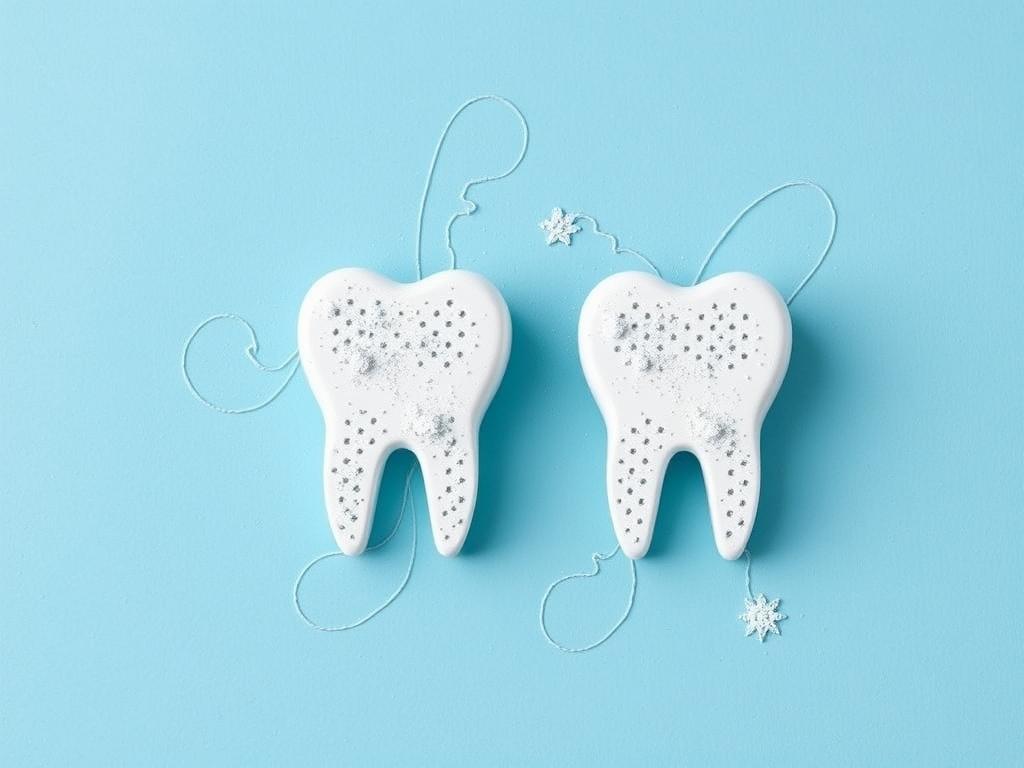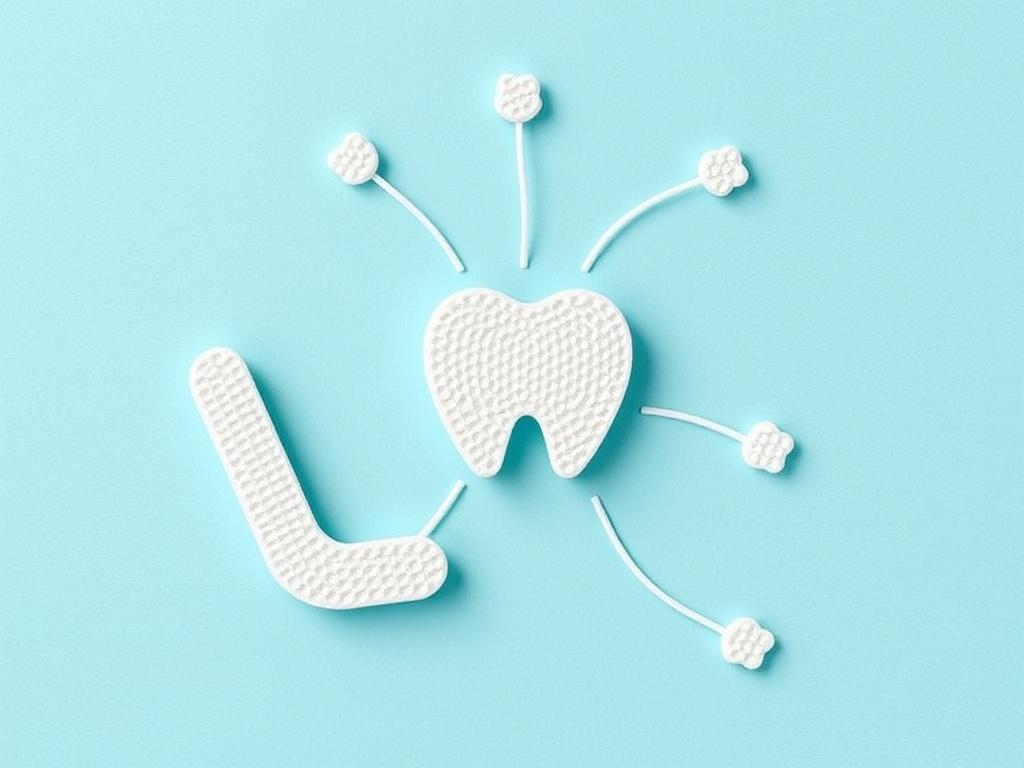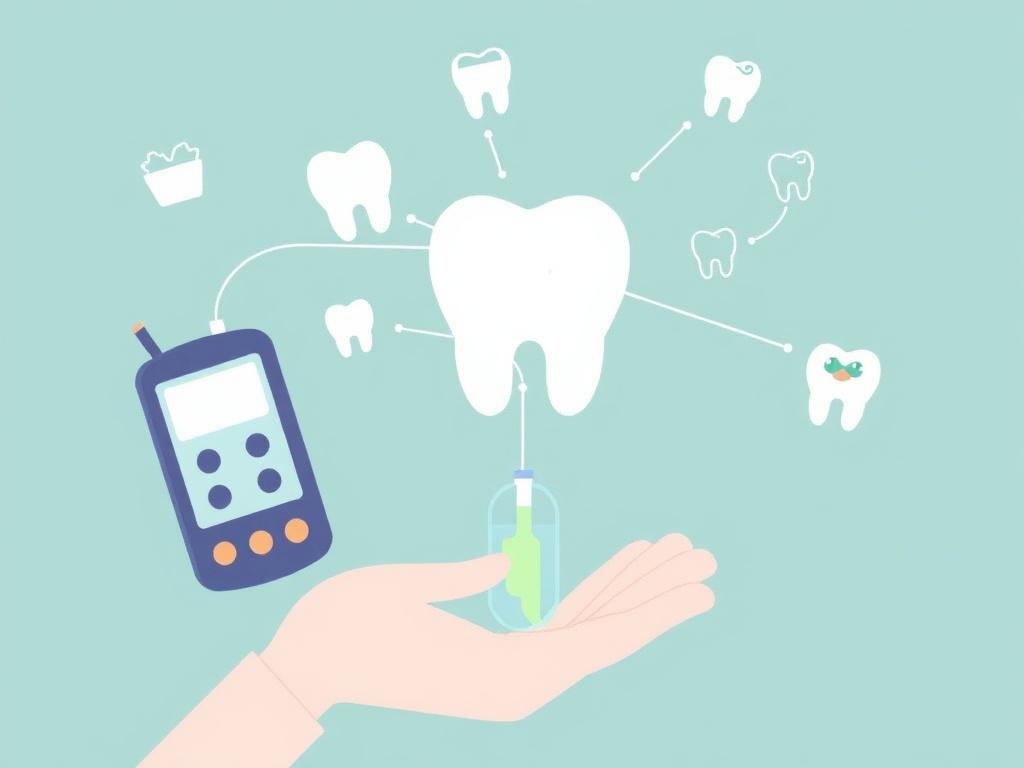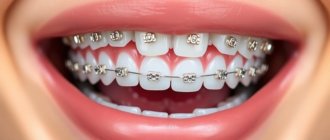Living with diabetes requires constant attention to many aspects of your health, but one area that often goes overlooked is dental health. You might wonder, “What does diabetes have to do with my teeth and gums?” As surprising as it sounds, diabetes and dental health are closely intertwined. This connection can affect not only your mouth but also the management of diabetes itself. Understanding this relationship is essential for maintaining your overall well-being. Let’s dive deep into the link between diabetes and dental health, explore why it matters, and discuss how you can take the best care of your teeth and gums when living with diabetes.
Содержание
- 1 The Complex Relationship Between Diabetes and Dental Health
- 2 Recognizing the Signs: When to Visit Your Dentist
- 3 What Happens During Your Dental Visits When You Have Diabetes?
- 4 The Role of Diet and Lifestyle in Dental Health for Diabetics
- 5 The Future: Advances in Understanding the Diabetes-Dental Health Link
- 6 Supporting Your Dental Health Journey as a Person with Diabetes
The Complex Relationship Between Diabetes and Dental Health

The connection between diabetes and dental health is not vague or indirect — it’s a two-way street where each condition can impact the other. Diabetes is a chronic condition that affects how your body uses blood sugar (glucose), and high blood sugar levels can have significant consequences for your mouth.
People with diabetes are more prone to certain dental problems, including gum disease (periodontitis), dry mouth, infections, and delayed healing after dental procedures. Why does this happen? High glucose levels in saliva provide an excellent environment for bacteria to thrive, increasing the risk of infections. Additionally, diabetes can impair blood flow, which hinders the body’s natural ability to fight oral bacteria and heal wounds efficiently.
At the same time, poor dental health, especially untreated gum disease, can make it harder to control blood sugar levels, complicating diabetes management. This interplay makes dental health an integral part of diabetes self-care.
How Diabetes Affects Your Oral Health
Several dental health issues are more common and often more severe in people with diabetes. Let’s explore the main problems you need to watch out for:
- Gum Disease (Periodontitis): This is the most common dental condition linked to diabetes. People with poorly controlled diabetes are at a higher risk for gingivitis and periodontitis, inflammatory conditions of the gums that can lead to tooth loss.
- Dry Mouth (Xerostomia): Diabetes can reduce saliva production, causing dry mouth. Without enough saliva, which helps wash away food particles and neutralize acids, you become vulnerable to cavities and infections.
- Thrush and Oral Infections: Elevated blood sugar levels promote fungal infections such as candidiasis (oral thrush), making your mouth a breeding ground for yeast and other harmful microbes.
- Delayed Healing: If you have diabetes, wounds inside your mouth, including those from tooth extractions or gum surgery, may heal slowly because diabetes affects your immune response and blood flow.
Why Gum Disease Is Especially Dangerous for People with Diabetes
Gum disease is more than a local problem confined to your mouth. For individuals with diabetes, it can have far-reaching effects. The inflammation caused by gum disease increases the levels of inflammatory markers in the bloodstream. These markers can worsen insulin resistance, a hallmark of type 2 diabetes, thereby making blood sugar control more difficult.
Research shows that severe gum disease can lead to higher blood glucose levels, creating a vicious cycle where worsening diabetes promotes gum disease, which in turn, worsens diabetes. This is why regular dental checkups and good dental hygiene are crucial for diabetes management.
Recognizing the Signs: When to Visit Your Dentist
One of the best defenses against diabetes-related dental problems is early detection. Recognizing the symptoms and visiting your dentist promptly can save you from complications. Here are some warning signs to be aware of:
- Red, swollen, or bleeding gums
- Persistent bad breath
- Loose or shifting teeth
- Burning sensation or pain in your mouth
- Dry mouth or frequent thirst
- White patches inside the mouth (could indicate thrush)
- Sores that don’t heal in a reasonable time
If you notice any of these symptoms, especially if you have diabetes, don’t delay visiting your dental professional. Early intervention can prevent long-term damage and help keep your blood sugar under control.
Dental Care Tips for People with Diabetes
Maintaining excellent oral hygiene is critical for people with diabetes. Here are some practical steps you can take every day:
- Brush Twice Daily: Use a soft-bristled toothbrush and fluoride toothpaste. Brush gently but thoroughly to remove plaque.
- Floss Regularly: Floss daily to clear food particles and plaque between teeth where your toothbrush can’t reach.
- Stay Hydrated: Drink plenty of water to combat dry mouth and encourage saliva flow.
- Limit Sugary Foods and Drinks: These can cause spikes in blood sugar and increase cavity risk.
- Avoid Tobacco Products: Smoking or chewing tobacco worsens gum disease and complicates diabetes management.
- Control Your Blood Sugar: Work with your healthcare team to keep your glucose levels within target ranges.
- Regular Dental Visits: Schedule professional cleanings and checkups at least twice a year or as advised by your dentist.
What Happens During Your Dental Visits When You Have Diabetes?

When you visit your dentist, especially if you have diabetes, the appointment will cover more than just cleaning your teeth. A dental professional will:
- Check for signs of gum disease and any oral infections
- Monitor the condition of your gums, teeth, and oral tissues
- Assess your bite and check for any signs of dry mouth or thrush
- Discuss your diabetes control and medications to understand potential impacts on oral health
- Offer personalized guidance on oral hygiene and diet
- Perform professional cleaning to remove plaque and tartar buildup
In some cases, your dentist may collaborate with your diabetes care team to ensure seamless management of your health.
Managing Dental Emergencies When You Have Diabetes
Dental emergencies, such as toothaches, abscesses, or trauma, need immediate attention. For people with diabetes, infections can spread more rapidly and may become severe if not treated promptly. Here are some tips if you face a dental emergency:
- Contact your dentist as soon as possible
- Keep your blood sugar under control—even during illness
- Follow any antibiotic or pain medication instructions carefully
- Maintain good oral hygiene to prevent worsening of the condition
- Report any unusual symptoms like swelling, fever, or difficulty swallowing to your healthcare provider immediately
The Role of Diet and Lifestyle in Dental Health for Diabetics

Your choices at the dinner table and beyond can have a significant impact on both diabetes management and oral health. A balanced diet rich in nutrients supports your immune system and helps fight off infections, including gum disease. Here’s what to keep in mind:
| Food Type | Impact on Diabetes | Impact on Dental Health | Examples |
|---|---|---|---|
| Complex Carbohydrates | Slow glucose release, helps control blood sugar | Lower risk of cavities compared to sugary foods | Whole grains, legumes, vegetables |
| Sugary Snacks and Drinks | Cause blood sugar spikes, contribute to insulin resistance | Feed harmful oral bacteria, increase cavity risk | Candy, soda, desserts |
| Calcium-Rich Foods | Support bone health, important for insulin sensitivity | Strengthen teeth and jawbone | Milk, cheese, yogurt |
| Vitamin C-Rich Foods | Improve immune function | Help heal gums and fight inflammation | Citrus fruits, broccoli, strawberries |
| Water | Hydration supports blood sugar regulation | Aids saliva production, rinses mouth | Plain water, herbal teas |
Maintaining a healthy lifestyle through regular exercise, stress management, and avoiding smoking can also contribute significantly to good dental and diabetes health.
Myths and Facts About Diabetes and Dental Health
Sometimes, misconceptions can prevent proper action. Let’s clear up a few common myths around diabetes and dental health:
- Myth: “If my blood sugar is controlled, I don’t have to worry about dental problems.”
Fact: Although good control lowers risks, regular dental checkups are still essential. - Myth: “Only people with type 2 diabetes have oral health issues.”
Fact: Both type 1 and type 2 diabetes can affect dental health. - Myth: “Dental treatments are unsafe if I have diabetes.”
Fact: With good blood sugar control and communication, dental treatments are safe and necessary. - Myth: “Bleeding gums during brushing is normal and nothing to worry about.”
Fact: Bleeding gums can signal gum disease, especially in diabetes, and should be checked.
Understanding the facts empowers you to take better care of your mouth and your diabetes.
The Future: Advances in Understanding the Diabetes-Dental Health Link
Research continues to uncover more about the complex relationship between diabetes and dental health. New treatments, such as targeted antimicrobial therapies and improved monitoring tools for gum inflammation, are showing promise. Advances in telemedicine and wearable health tech also open up new ways to integrate dental care into diabetes management, making it easier for patients and providers alike.
Emerging evidence also suggests that managing oral inflammation could play a role in preventing diabetes-related complications beyond the mouth, highlighting the importance of oral healthcare in holistic diabetes care.
Summary Table: Key Points of the Diabetes and Dental Health Connection
| Aspect | Impact of Diabetes | Impact on Diabetes | Recommended Action |
|---|---|---|---|
| Gum Disease | Increased risk and severity | Worsens blood sugar control | Frequent dental checkups, good hygiene |
| Dry Mouth | Less saliva, more cavities | None direct, but discomfort affects eating | Hydration, saliva stimulants |
| Oral Infections | Higher susceptibility | Could cause inflammation and glucose spikes | Prompt treatment, maintain blood sugar |
| Healing | Slower wound healing in mouth | Delayed recovery hinders diabetes management | Manage glucose, follow dentist’s advice |
Supporting Your Dental Health Journey as a Person with Diabetes
Living with diabetes means being proactive about all aspects of your health, including your dental well-being. Building a strong partnership with both your healthcare team and your dental care provider is essential. Incorporate good oral hygiene habits, maintain a balanced diet, and keep regular dental appointments to reduce your risk of dental complications.
Remember that taking care of your mouth is not just about preventing cavities or bad breath—it’s a crucial part of controlling diabetes and improving your overall quality of life. By understanding the connection between diabetes and dental health, you empower yourself to make informed choices that protect your smile and your health.
Conclusion
The link between diabetes and dental health is clear and significant. Diabetes increases your risk for gum disease, dry mouth, infections, and poor healing, all of which can complicate blood sugar control. Conversely, untreated dental problems can worsen diabetes by increasing inflammation and insulin resistance. Maintaining careful oral hygiene, visiting your dentist regularly, managing your blood sugar, and adopting a healthy lifestyle are all critical steps to breaking this harmful cycle. By recognizing and addressing the intricate connection between diabetes and dental health, you can protect your smile, improve your diabetes management, and enjoy better overall well-being. Taking charge of your oral health is not just an option; it’s an essential part of living well with diabetes.






